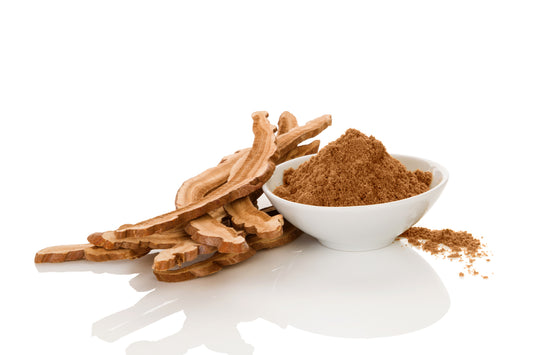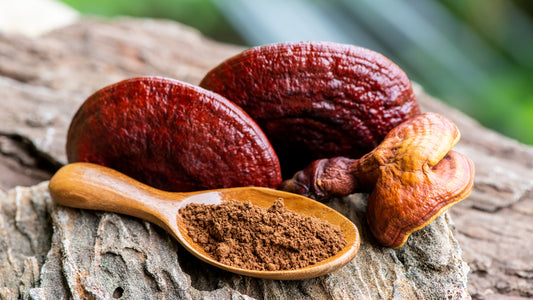Drinking tea is a ritual that touches all of the senses. The whistling kettle alerts ears that it’s almost time, heightening the anticipation. Once poured, the temperature of the mug is warm and comforting; the steam reaches your nose with the characteristic aroma. After it has steeped sufficiently, you take the first sip. The taste is familiar and satisfying.
Drinking tea is a small action you may take during the day that can contribute to your overall health. Setting aside the time to brew and enjoy it can give you a moment of solitude. Though the time is short, it can feel quite indulgent. In some small way, you are pausing to take care of yourself.
Tea has an ancient history as a nourishing and healing beverage. Its qualities are celebrated for their effects on the body and the spirit. Many cultures have cherished traditions around the brewing and consumption of tea. Hot, cold, sweet, spicy, green, white, black—the wide variety of teas highlights both sacred and relaxing traditions from every continent.
There is another tea variety that is getting a lot of buzz lately—it’s mushroom tea. In addition to the sensory experience inherent in tea time, mushroom tea can provide nutrition and support your body’s natural immune functions and response to stress. Learning about functional mushroom tea benefits can help you to upgrade your daily tea ritual and make it an even more valuable indulgence that supports good health and vitality.‡
Why Mushrooms?
Much like the traditions around tea, mushrooms have been used since ancient times for their flavorful, nutritious, spiritual, and healing properties. These natural living things offer an unusual alternative to the plant and animal products in a typical diet.
- Flavor: Mushrooms possess unique umami, which translates as “pleasant savory taste” or “essence of deliciousness” in Japanese. One of the five flavor categories, along with sweet, salty, bitter, and sour, umami is characterized by the presence of glutamate, an amino acid that is a building block of proteins. Found only in certain foods, umami flavor lingers providing pleasurable sensations on the tongue.
- Nutrition: Besides the earthy flavor that mushrooms bring, they are packed with nutritional value. Relatively high in protein and complex carbohydrates, mushrooms are low in calories and sodium and are fat-free. Because of the way they grow and their role in the ecosystem, mushrooms are a good source of micronutrients, including vitamins and trace minerals.‡
- Spiritual: There is historical evidence dating back to the Stone Age that mushroom species have played a role in sacred rituals and spiritual journeys. In wide-ranging cultures as diverse as Indian and African to Native North and South American to the ancient Greeks, psychoactive mushrooms have been used by shamans and healers for sacramental and spiritual purposes.
- Healing: Long revered for their healing properties, functional mushrooms have been harvested, dried, and powdered to preserve their bioactive compounds. In traditional and folk medicine all over the world, mushroom teas and tonics have been used to support the immune system and treat disease for thousands of years.‡
As you learn more about these fascinating fungi, it’s natural to want to incorporate these superfood powerhouses into your routine. Functional mushroom tea is an accessible, easy-to-prepare beverage that can have real benefits for you.
How to Get Functional Mushroom Tea Benefits in Your Day
If you are convinced that you should try this beverage that has everyone talking or you are even just a little bit curious, it’s easier than you think to add mushroom tea benefits to your day. Quality mushroom powder allows you to easily enjoy all the benefits functional mushrooms have to offer.
Add a Bit of Interest
One way to amp up your existing tea routine is to stir in a teaspoonful of mushroom powder—it’s equivalent to the recommended daily dose of 2 grams per day. Prepare your tea as usual but enjoy the added flavor notes of a species such as lion’s mane or shiitake.
Kick Up the Antioxidants
Tea already contains catechins, potent antioxidants that help prevent cellular damage by neutralizing the free radicals that result from chemical reactions in the body. Mushrooms add additional antioxidants which help to magnify this protective potential. Try adding a teaspoon of chaga to your cup of tea to help reduce oxidative damage to your cells.‡
Destress With a Cup
Several functional mushroom species are prized for their adaptogenic properties. These mushrooms help the body adjust to life’s stresses when used regularly. Try adding a teaspoonful of reishi, shiitake, cordyceps, chaga, or maitake to your tea routine.‡
Enhance the Nutrition
Punch up the nutrition in your tea by giving it the benefit of mushrooms’ unique nutritional profile. The many nutrients, including protein, B vitamins, and trace minerals, increase the nutritional value of your cup without adding many calories. The prebiotic fiber supports gut and metabolic health and aids digestion.‡
Power Your Immune System
Mushroom cell walls contain beta-glucans, a soluble fiber comprised of polysaccharides. Beta-glucans are powerful immunomodulators that support healthy immune functioning. Make turkey tail tea by mixing a teaspoonful of high-quality, whole mushroom powder into hot water to harness all of its potential to support your body’s natural immune system.‡
Switch it Up
Because the process of making mushroom tea mainly involves steeping mushroom powder in hot water, the recipe can easily be altered to create a savory broth instead. Try adding ginger, fresh herbs, and sliced jalapenos to a broth containing both dried and fresh mushrooms.
As you can see, there are many ways to experience mushroom tea benefits. To maximize those benefits, be sure you’re purchasing a quality product and you’re properly preparing the tea.
Maximize the Benefits of Your Mushroom Tea
The process of steeping mushroom powder in hot water or adding it to hot tea increases the availability of many of its bioactive ingredients. A temperature of 160°F is best for preserving the adaptogenic and immune-supporting compounds while making them more easily absorbable for your digestive system.‡

While heat enhances the bioavailability of some key compounds, too much heat can denature other mushroom powder nutrients. When mushrooms are grown indoors under hygienic conditions using filtered water and filtered air, microbial contaminants like bacteria are minimized. These products do not require high temperature, high pressure “kill steps” to eliminate contaminants. Look for mushroom powder products that have undergone just enough processing to soften the chitin in their cell walls. This makes them easier to digest and assimilate without negatively affecting their bioactive components.‡
Adding functional mushrooms to your daily tea ritual brings a whole host of healthy benefits. Mushroom powder can enhance the flavor while providing nutritional, antioxidant, and immune system support. Available as a bulk powder or in single-serving packets, mushroom powder is portable and convenient to use. Try specific species for targeted benefits or a multispecies blend for the benefits of several of these superfood powerhouses.‡
[CTA]
‡These statements have not been evaluated by the Food and Drug Administration. Functional mushroom products are not intended to diagnose, treat, cure or prevent any disease.













